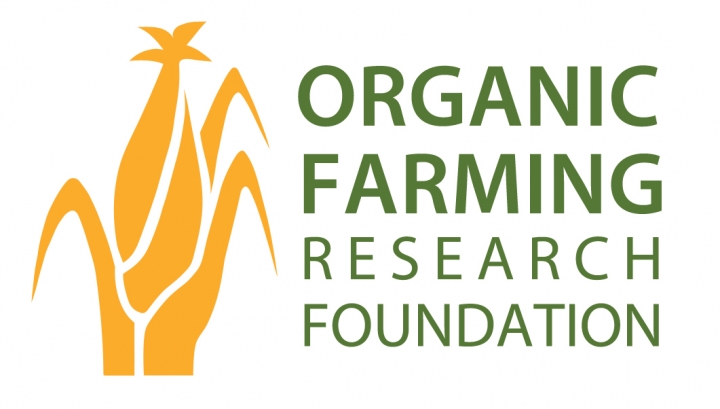Historic posts are reprinted verbatim from their original source.
Source: Statement of Mark Lipson, Policy Program Director, Organic Farming and Research Foundation, Food and Drug Administration, Public Hearing on “Biotechnology in the Year 2000 and Beyond,” Oakland CA, December 13, 1999
[Federal Register Docket# 99N-4282]The Organic Farming Research Foundation is a producer-directed organization dedicated to the improvement and adoption of organic farming methods. As analysts of U.S. policy for food and agricultural issues, we appreciate the opportunity to comment on FDA’s policies and performance regarding “bioengineered foods.”
We are not categorically opposed to every use of “bioengineering” in agriculture, but OFRF believes that the federal government has fundamentally failed to provide an adequate regulatory regime for transgenic technologies and products.
In particular, the division of responsibilities among FDA, EPA and USDA ensures that there is no comprehensive, public interest oversight governing the release of transgenic organisms into the environment and the food supply. The environmental, agricultural, food safety and food security issues cannot be considered in isolation from each other, and sound public policy cannot be formulated or implemented in such a fragmented system.
Furthermore, under the existing regulatory framework there is no definite point of accountability for the consequences of this regulatory failure. There is nobody ultimately in charge except the biotechnology industry itself. The Administration should immediately begin the process of forging a new, comprehensive regulatory process, with extensive participation from consumers, farmers and the public interest community. Unless and until a new regulatory system is in place, a moratorium on all transgenic food and agricultural applications should be imposed.
Regarding the six specific issues posed by FDA in its Federal Register notice for this meeting, we have the following comments.
Scientific/Safety Issues:
[Has FDA’s consultation process achieved its intended purpose? Based on experience to date, should this regulatory approach “sunset,” continue in its current state, be made mandatory, or otherwise be revised?]FDA’s so-called “consultation process” has failed to assure public safety and it has helped to undermine confidence in the products of U.S. agriculture. The process should be scrapped immediately and reformulated in the context of a new, unified regulatory system.
[What newly emerging scientific information related to the safety of foods derived from bioengineered plants is there, if any? Are there specific tests which, if conducted on such foods, would provide increased assurance of safety for man or animals consuming these foods?]There is substantial new information related to the safety of “bioengineered” foods, as well as old information that the agency has apparently ignored. New information includes emerging knowledge of the massive and ubiquitous effects from transgenic plants in the agricultural environment and livestock physiology. These effects may indeed have important implications for food safety and they have not been recognized by any U.S. regulatory agency. Mandatory pre-market safety testing must be based on the actual transgenic product, as used in the real world and as consumed by real people and animals. In addition to the requirement for real-world pre-market testing, there must be much more rigorous controls on the transparency and objectivity of the testing that is done.
[What types of food products derived from bioengineered plants are planned for the future? Will these foods raise food safety issues that would require different approaches to safety testing and agency oversight? If so, what are those approaches?]The powerful and uncertain qualities of current and planned transgenic food “events” demand a complete overhaul of the governmental approach to safety testing and agency oversight, as we have stated.
Public Information Issues:
[Should FDA’s policy requiring labeling for significant changes, including changes in nutrients or the introduction of allergens, be maintained or modified? Should FDA maintain or revise its policy that the name of the new food be changed when the common or usual name for the traditional counterpart no longer applies? Have these policies regarding the labeling of these foods served the public?]FDA’s labeling policy has failed to serve the public interest. The failure to require labeling is imposing unacceptable costs and risks on the farmers and manufacturers who do not wish to have anything to do with transgenic foods. We are bearing the demand of consumers to know what is in their food. The public has a right to require labeling of transgenic content in their foods, and the government must implement this in a way that unequivocally places the costs and liabilities on the patent-holders and their licensees.
[Should additional information be made available to the public about foods derived from bioengineered plants? If so, what information? Who should be responsible for communicating such information?]All data and background information related to safety, efficacy, use and fate in the environment of transgenic food products and ingredients must be provided by the product developers and made available to the public. In addition, FDA must go out of its way to document and explain all information about the regulatory actions of the agency, including conflict-of-interest recusals by the numerous FDA personnel who have worked in the biotechnology sector.
[How should additional information be made available to the public: e.g., on the Internet, through food information phone lines, on food labels, or by other means?]FDA should use every means at its disposal to distribute information to the public, and it must also make a much stronger effort to include the public in its decision-making. Above all it must heed what it is hearing from consumers and contribute to overhauling the entire regulatory system for “bioengineered” foods.

